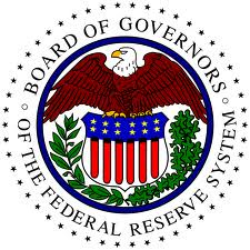In the United States, the House of Representatives passed an Act organizing the audit of monetary decisions of the Fed.
http://www.thejournalofregulation.com/spip.php?article1577

Central banks have a decisive role on the markets and the question of their accountability is raised. This is particularly true concerning the powerful Fed which applies a genuine economic policy. For the moment, a kind of observatory made remarks to the benefit of the Congress on it. The House of Representatives voted on 8 August 2012 a text that increases the audit of this policy determined by the single Central Bank. If the Senate also voted this text, then comes a law so that the Central Bank, although independent will be more accountable . Thus the fundamental couple in regulation, namely "independence - accountability" will be more respected.
© thejournalofregulation
We are currently in the midst of a legislative changeover. Indeed, for a law to be adopted in the United States, it must be passed by the House of Representatives and the Senate, both chambers constituting the Congress.
On August 8, 2012, a legislation act was passed by the House of Representatives. If it is adopted in the future by the Senate, it will become law. It aims to organize the accountability of economic decisions of the Fed.
More specifically, the text organized an audit of monetary policy decided by the Fed.
The idea is that while both the Fed as the Central Bank can only be independent and at the same time, it must be observed in the relevance of these actions. In this, it is not controlled, but it must be however accountable.
It is a rational conception of democracy, which assumes that an irrational action of the independent body, highlighted by the democratic body that is the Congress, will have the effect to bring back the first body on its position or, at least, of weakening it for the future.
This design is already present in the United States. Thus, the United States Government Accountability Office (GAO) has estimated that the measures adopted by the Fed in 2008 and 2009 were questionable in that they encouraged moral hazard, the Bank contributing in this way to the amplification of the crisis.
If the comments become the one of the Parliament and no longer than of the agency at the service of the Congress that constituted the Government Accountability Office (GAO), their democratic weight will be stronger. Between the observation and control, the distinction is often thin, in very self-observed and self-fulfilling systems...It is true that the text came from a proposal of law made by a representative, Ron Paul, author of a book untitled "End the Fed", is very hostile to this institution. This observation does not moderate the legitimacy of the question of the democratic consistency of Central banks, pillars of global banking and financial systems, whose hands are free.

your comment